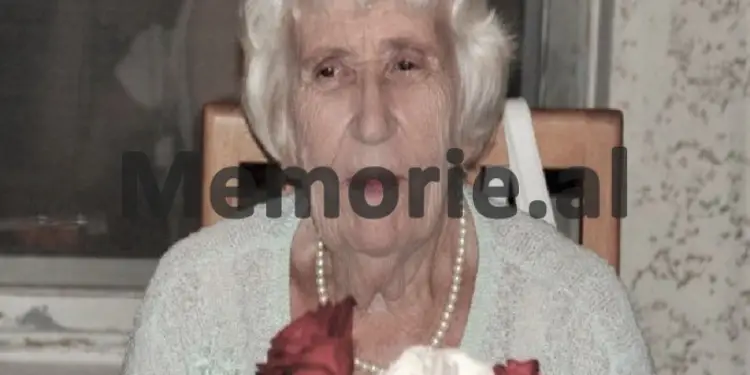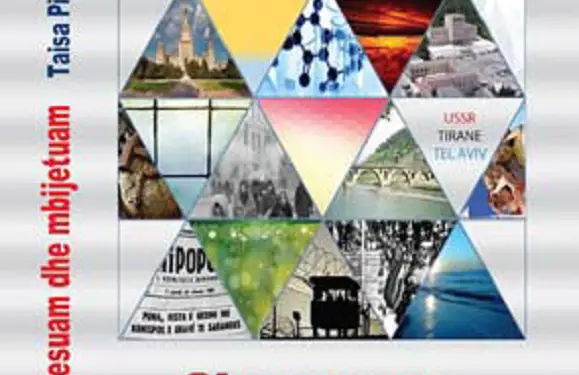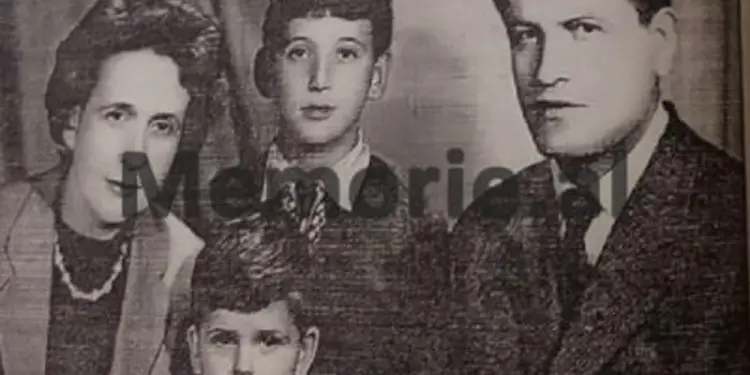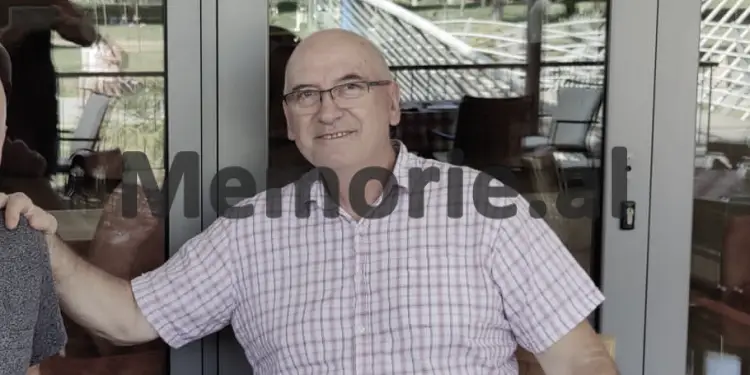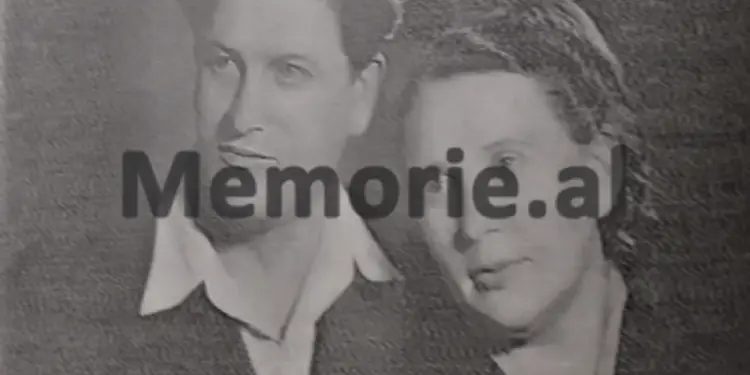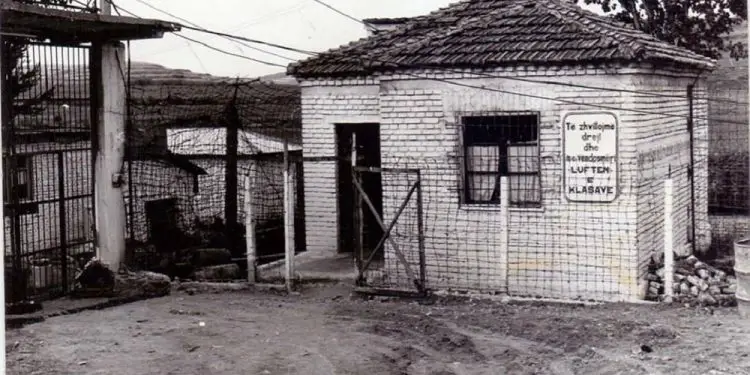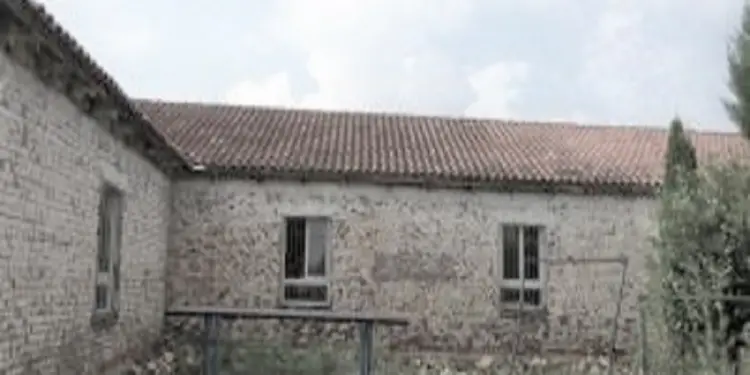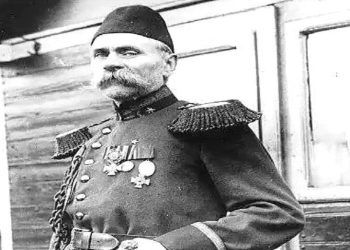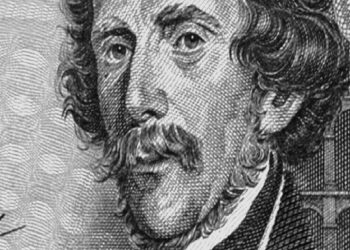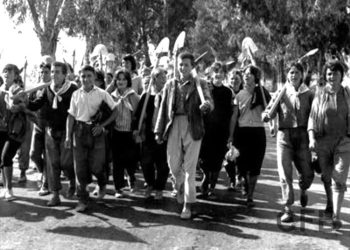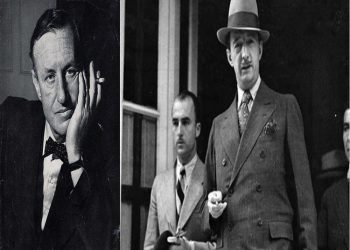Taisa Batkina Pisha
Part twenty-three
Memorie.al/ publishes the unknown story of the Russian Taisa Batkina (Pine), originally from Tula, Russia, the third child of a very poor rural family, who was left an orphan at a very young age, after her father lost her life while working in one of the coal galleries on the outskirts of Tula, where he worked as a miner (shortly after escaping arrest, accused of “supporting the enemies of the people”) and she grew up with difficulty great economic, as their city continued to be under the bombardment of German forces, which had reached as far as near Kursk. Taisa graduated from the Faculty of Chemistry, near the ‘Lomonosov’ University of Moscow, where she met and married the Albanian student, Gaqo Pisha, originally from the city of Korça, who at that time was studying at the Faculty of Philosophy in Moscow and both together in 1957, they returned to Albania, together with their newborn son, Sasha, and began life in the city of Tirana, where Taisa was appointed as a professor of Chemistry at the State University of Tirana, while Gaqo, in the chair of Marxism- where they worked until 1976, when the State Security arrested Taisa Batkina on fabricated charges, accusing her of being a “Soviet KGB agent” and sentencing her to 16 years in political prison, which she suffered in the “Women’s Prison” in the city “Stalin”, from where she was released in 1986, while her husband, Gaqo Pisha, had died in 1983, from a serious illness. The tragic story of Taisa Batkina (Pine), in the inhuman camps and prisons of Enver Hoxha’s communist regime, where she spent a decade of her life, along with many compatriots from the former Soviet Union, or other Eastern European countries, comes through her memories, published in a book entitled “We hoped and survived”, memories which, her son, Aleksandër Pisha, kindly offered her for publication, in Memorie.al
We hoped and survived
I dedicate it to the bright memory of my husband, GAQO PISHA
This is a book of memories. In it I want to tell about my life and that of my friends, Soviet women, who tried prison for several years just because they got the courage and got married and linked their fate with that of Albanian students. The prison was part of the great GULAG in the small Balkan country, Albania, where for many years the bloody communist regime of Enver Hoxha ruled, who was a loyal student of Stalin and a follower of his cause.
Through this book I would like everyone to learn about the inhuman trials we experienced and the horrible years we spent in Albanian prisons, just because we… fell in love! And let no one ever forgets what totalitarianism, despotism is and what the consequences of this system are.
Continued from the previous issue
Azize Ferhati
When we were brought to the camp, Aziz had done 8 years of her sentence; she had become a “veteran”. She stood out for her noble beauty, with gray hair, wavy, carefully shaved, regular facial features. He was 55 years old. Azizja treated everyone the same, always calm, with a gasp and a strong sense of humor. Always busy with work. We became friends with him. No one came to meet him. Throughout his years in prison, he did not receive a letter, a little help from outside; he was behaving in such a way that everyone respected and loved him, and always helped him. But even she was not indebted to others, she heated water for women who worked, cooked, sewed. There were many friends. It was the soul of society. He also socialized with young girls; they called him “grandfather” with caresses and humor. And indeed, his short, gray hair, confident step, and enduring kindness made him look like a real grandfather. Aziz knew how to psychologize people. At first glance, she was a characteristic of newly arrived women and she was never wrong. Among our most common pastimes was paper fortune telling with coffee grounds. No one knew how to cast a spell, but every cup of coffee was turned upside down, then, with a cup in our hands; we wandered and begged someone to “sing” to us. There were some women who liked to cast spells; they took the cup in their hands, pretended to think and said the same words to us: “They will come to your meeting, you are all well at home, and you will be released soon”, etc. And, although everyone knew, that they were empty words, in the soul as if we felt better.
Azizja also “threw fortunes”. One day Age Paja came to him and handed him the cup: “Forgive me”. Azizja took off her glasses, looked carefully inside the cup and said: “In April you will be released, Age, here you have the signed release document”. Agia, who had been there for 20 years, left satisfied. I was surprised and turned to Aziza: “Why did you tell him that he would be released, April is here!” “Nothing,” Azizja replied, “if not this April, he will be released next.” Didn’t you see how it was relieved ”? When I asked her to “sing” my cup, she laughed and asked me: “Do you want me to lie to you?” Is good! How can I lie to you? With glasses, or without size ”? It was easier for her to endure the horrors of prison. Aziz never lowered herself in front of others, did not lick anyone, was not afraid of anyone. When I learned her story, I realized that she had always been a brave woman. Her father, an orphan, had fled as a child with some relatives to Egypt (Egypt). There he worked and taught. He sought the bride in Albania, in Gjirokastra and married a young Albanian girl, whom he took with him to Egypt, where they lived for many years. At the end of 1938, the whole family, parents and three children, came to Albania to see the relatives of the mother, where suddenly her father became seriously ill and her father died. Due to the war, which started in 1939, they could not escape to Egypt and remained in Albania. Azizja was 17-18 years old at the time and got married very soon. Her husband was appointed prefect of the city of Gjirokastra.
In 1944, the war ended in the territory of Albania. The communists came to power. The first thing the new government did was to shoot without investigation and without trial all those who had been its opponents during the war and those who considered them powerful opponents. On the outskirts of the city, among many others, intellectuals, clerics, merchants, clerks, etc., Aziza’s husband was also shot. Authorities did not allow relatives to bury the dead. Together with the sister-in-law, the husband’s sister, at night, Azizja was stolen to the place of the shooting, they took her killed and buried her. For this and as the wife of the former prefect, Azize was taken to the camp for “enemies of the people”. Enemies were declared almost all those who had not supported the pro-communist partisan movement, wealthy people, as well as those who had studied abroad. Among the internees and arrested, there were also Albanian patriots, who had once fought for the declaration of independence of Albania, for the formation of the Albanian state. They had collaborated with Fan Noli, the Albanian patriot, who in 1924 formed the democratic government and declared Albania a Democratic Republic. This government was overthrown at the end of 1924 by Ahmet Zogu, who later declared himself King of the Albanians. Noli’s followers were persecuted by King Zog, hid, fled abroad. With the occupation of Albania by Italy in 1939 and the expulsion of Zog, conditions were created for the creation of a greater Albania, which included all lands inhabited by Albanians.
Under these conditions, many patriots and opponents of the Zog regime return to Albania. Of course, they were against the communist government, which abandoned the idea of a Greater Albania and complied with the demands to return the lands inhabited by Albanians to Yugoslavia. Among these patriots was Aziza’s husband. Aziz spent many years in prison. When she was finally released, she lived with her mother in Elbasan, where she worked. In Albania the Security organs never forgave or forgot anything. They did not forgive Aziza, who, with great courage, had kidnapped and buried her shot husband. In 1969, he was arrested along with a family friend. Charges: attempted escape to Egypt. The lawsuit was ridiculous. How could they escape to Egypt, while living in the center of Albania, in Elbasan, in a place where everyone was tracked down, where escape was almost impossible?! But the work was planned: “Group escape”…! Aziz was sentenced to 16 years in prison. He was released with the amnesty of 1982. He spent 13 years in prison…! She went out without money, without relatives, without a home. Relatives forced him to deny Aziza, the old mother who had been waiting for him all these years, died a year before she was released; the house had been occupied…! Azizja kept telling me: “Only thanks to my tricks (the tricks were optimism, energy, will, sense of humor), I managed to survive in prison, without any penny help from outside, without any paper or postcard, trying hunger… without everything , that man needs. “But God did not forget me, he always helped me.”
I escorted him when he got out of jail. We stopped at the gate; Azizja waited her turn to come out. Suddenly he was called to the barbed wire fence. An acquaintance of her family, already released, handed her a 500-lek banknote: “Take it, return it to me later”! “Look, did you? Did I not tell you that God does not forget me? ” – Azizja smiled at me. She was given a dormitory room and a small pension. Gradually, especially after the death of Enver Hoxha, when some changes were noticed in the country, Azize’s relatives began to help her little, trying to keep it a secret, that she had been in prison and that they did not communicate with her. After the fall of the communist regime, Azizja, like many former political prisoners, received compensation for years in prison, given an apartment. He lives alone. But there are many friends and relatives who love and support him. I want to say a few words about another phenomenon, more precisely, about the working methods of the Security organs. To give more importance to his work, to show that there are enemies everywhere and the glorious organs of the Security fight capture the enemies, spread rumors about crimes that had never been committed. These crimes were charged to innocent people. The authorities had their own magazine, In the Service of the People, which described the horrific crimes committed by treacherous enemies. In these writings, the fact was only the arrest, all the other. Fabrications, but the readers believed, sought among the arrested the most suitable people and charged them with the crimes invented by the Security organs. So it was with Aziza. After her arrest, in the city where everyone knew and respected her and did not believe the words of escape, they uttered words as if she was part of the group that wanted to poison the city water, that they had allegedly thrown poison in wells and reservoirs. It often happened that ordinary convicted girls, coming from the city of Elbasan, asked Aziza: “Are you the one who wanted to poison the water in the city?” Aziz laughed and said, “Sure, who else?” When one day I revolted and asked her, “Why do you not oppose them?” She replied with a gasp:
Lena Nikaj, “pregnant grandmother”
Here is another story. In the magazine “In the service of the people”, a story was published about the cunning and treacherous spy, sent to Albania by the Italians. One day this Italian spy was brought to our camp (I do not remember the date, he must have been there since 1979). She was an old woman, very fat, short and well dressed. They call her Lena Nikaj. Later we started calling her among us “pregnant grandmother”. During the Italian occupation of Albania, Lena, a Catholic from northern Albania, married an Italian and fled to Italy. But life did not go well for her, her husband left her and she lived alone for many years, without family, because they had no children. Apparently, loneliness, the great desire to have a child, became the cause of her mental illness “imaginary burden”. It seemed to her that she was pregnant, that she would have a child. When she was in her fifties, she started a family with an elderly man who needed care. But she thought only of her imaginary child. In her sick mind, the idea was born, that in her homeland, Albania, she would surely have children. In Albania, in the city of Lushnja, lived her brother. Lena turned and went to him. He went through the doctors, prayed for help to give birth, learned where the holy places were, went there, and prayed. For the Albanian Security organs, Lena was “deeply fat”. It was precisely the time of great persecution, the mid-1970s. By arresting Lena, the district of Lushnja carried out the plan of detecting the enemies of the people. They send a boy, who very kindly accompanied him to the holy places, the former monasteries. One fine day Lena was arrested. Initial charges fet religious propaganda. During the investigation, they tried to make her an ‘Italian spy’, but Lena was just crying she did not understand what was happening; she wanted to bring a midwife to help her give birth. After achieving nothing, Lena was tried, charged with agitation and propaganda, and given 10 years in prison.
She was really sick, mentally abnormal. On the whole he behaved calmly, he boiled something all day, and he ate. He seldom was aggressive; he attacked young women, grabbed them by the throat and said: “You took my husband, but I will not leave him! I will become a boy”! Others intervened, pulled him away, and calmed him down. She talked to everyone about her baby, showed them the diapers carefully folded in the suitcase, complained about the doctors, who did not want to help her give birth for so many years. Every evening, standing in the corner of the toilet, she seemed to tell her husband in Italian what they were given to eat in prison and how they treated him. They misbehaved, teased him, ridiculed him, and stole him. She no longer wanted to associate with women and often came to cry with us. Lena received regular pensions from Italy, even while in prison. I do not know the value of this pension in Italy, but in Albania they were called big money. Lena was a kind person and helped the poorest. He had Italian citizenship and, as a foreigner, received special food. In her account, a good amount of money was collected. When Lena was released under the 1982 amnesty, the prison administration was afraid to release her with a large sum of money. With the amnesty, many ordinary people were released, they all knew that Lena had money with her and they could rob her on the way. It was decided to start the next day by car going to Lushnja. The release of the pardoned was over, all the women left, only Lena remained. I was told he would come out tomorrow. She did not believe him, she started crying, and she did not leave the wires, the gate.
We tried to persuade her to come into the room, but she cried and through tears, she said: “They will not let me go, they always lie, always. Here, thus, I was arrested with lies. I wanted to leave for Italy, I realized that even Albanian doctors could not help me give birth to a child, I asked to be allowed to return, but they did not give me permission. One day they came, told me to collect all my belongings that they would take me to the airport, but instead of the airport they put me in jail. Even now they will not let me go”! Lena did not close her eyes all night, she cried, she did not believe that they would release her. In the morning he was released and taken to his brother. She continued to try to return to Italy for a long time, but it seems to me that she could leave only a few years later. When I looked at Lena, I thought how inhuman you must be to put such a sick man in prison. She needed to be cured; she had a place in the hospital not in prison. There were quite a few insane people in the camp, who had to be admitted to the Psychiatric Hospital, not kept in prison. But the Albanian justice did not even want to know about the health of the convicts. Madmen, pregnant women, and the sick were also tried. I remember a woman, who was constantly carrying a chest on her back and screaming something. I was told that this was not the first time he had been imprisoned. It was abnormal in the mind, so they had taken away her right to motherhood. She demanded that the children be returned, she was threatened. So they put him in jail. Whenever he went out, he would go to the head of the village council, threaten him, and ask him to return the children. So they arrested him again and brought him to the camp. Not in the hospital, not to cure him, but in prison! They released him and everything was repeated from the beginning!
Prenushia
In our corpus of “politicians” we also had an interesting person, Prenushe was called, in short Nushi. Unfortunate, poor, crazy woman. He had a very hard life. In recent years he had lived in Tirana with his two children. He worked as a street cleaner. One night he passed by at high speed and almost touched a car with diplomatic license plates. In Nush’s sick mind, the idea and plan of revenge was born. Somewhere, not far from her place of work, was a house inhabited by embassy staff, and in front of the house was a car park. Nushi owed the gypsy a sharp knife and at night was stolen near the cars and broke the tires of some of them. The next night he did the same. Nushi was a weak, petite, agile woman and walked around the cars unnoticed. It became a noisy diplomatic scandal. On the third night, Nushi was captured. When I asked Nushi in the camp, after we had spent several years in prison together, why she did this, she replied: “They wanted to oppress me, they are all foreigners, enemies…! I took revenge on them nicely, ëëë…?! How the tires burst… fap, fap, fap! Beautiful, eh”? Everything was just a whim of a crazy woman, but the issue was given political color. When questioned, Nushi was asked to tell his accomplices, the instigators. She mentioned all her close people, neighbors, and acquaintances. All were arrested, interrogated. Most were released immediately. The girl, the neighbor, where Nushi had taken the knife, was arrested and jailed for several months. And, since the knife was made by hand, her acquaintance who had worked it was also imprisoned. He stayed within more than a year. They wanted to form a terrorist group! (A novel “Knives” has been published on this topic in Albania).
I do not know why, probably because the crazy Nushi was not suitable for this role, the terrorist group was not formed. But that did not stop Nushi from being sentenced to… 14 years in prison, wearing some political articles. Thus, the poor woman, instead of the Psychiatric Hospital, found herself with us, in prison! I am not a doctor, but we all seemed to show signs of hysteria and schizophrenia. He often became aggressive, grabbing a hog, running around the camp and destroying whatever came his way. He liked to break and break down, the newly whitewashed walls were all stained, in the water discharge channels, he threw bottles, rags, trampled all our flowers, then lay down on the bed and did not raise his head. At that time our good director retired and in his place came a zullap, which made our lives even more unbearable. He did not want to know about the flowers, our lonely rest, or the maintenance of the camp. Both he and some of his team had become accustomed to calling Nushi to the wires and making fun of him. All the women felt sorry for Nushi, they tried to help her, they gave her some clothes, some food, cigarettes. She tore all the clothes, and then made up some weird costumes, turning sometimes Indian, sometimes Chinese, and sometimes black. It was clear that Nushi was seriously ill. But no one tore his head to cure him, enough that he was not in danger of death, and, if he exceeded the permissible limits, according to them, they put him in the dungeon! She needed to be treated in hospital. This is how people in Albania were treated. Sometimes Nushi was met by his children; his son was serving in the army. At first, when they arrested their mother, they deported them, took their house, but then they took pity on them and sent them back home. Nushi was released with the 1986 amnesty. He returned home. After some time the crisis hit her again, she broke and tore everything in the house. And again they did not cure him; they did not isolate him in the hospital. Who needed Nushi? It once took her just to fabricate the matter, and then no one thought of it. /Memorie.al
The next issue follows




